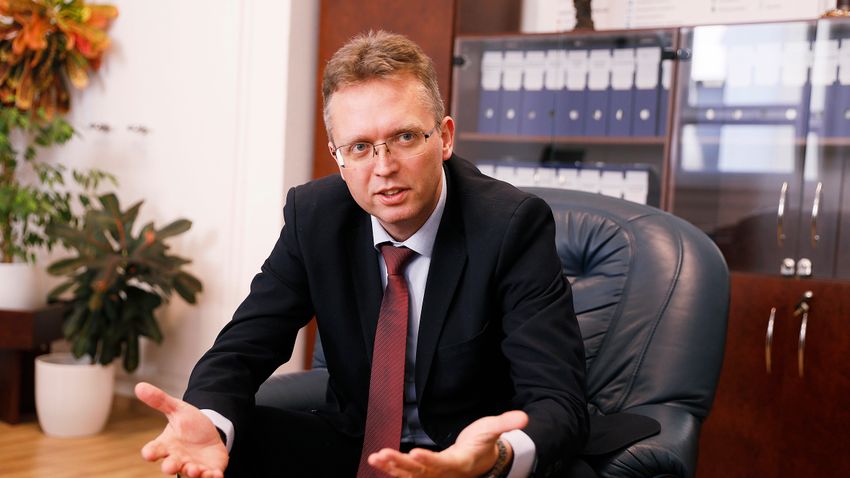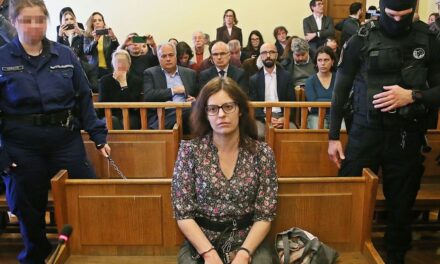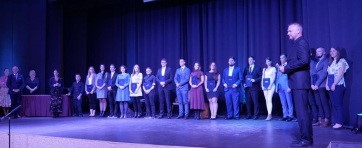The key to our country's competitiveness lies in the modernization of higher education and university-centered innovation
Balázs Hankó said in an interview with Magyar Nemzet.
– We are facing an important deadline: you can apply for higher education courses until February 15. Based on the data, more and more people want to continue their education every year, what factors do you think could be behind the positive trend?
– Summarized in one sentence: higher education has been renewed, it has changed its level. Of the 28,000 universities in the world, 11 Hungarian universities belong to the enviable first five percent of the best. Two-thirds of Hungarian students attend these institutions, which means that we are at the international forefront in almost every field of training. Hungarian university education has become more open to the needs of the economy and more practice-oriented. The success of higher education is demonstrated by the fact that the number of international students has increased by 65 percent since 2013. The government helps 100,000 students with 30 different scholarships for a total of HUF 60 billion each year. A significant part of the students admitted in 2021, more than four fifths, can study at places with state scholarships. In addition, they can do research together with renowned researchers such as Katalin Karikó, Ernő Rubik or Roska Botond, so they do not have to go abroad to meet the world's scientific elite. Hungarian universities perform excellently and have undergone significant development in the recent period.
– At the same time, getting a diploma is becoming more and more useful these days.
- One of the keys to the development of the Hungarian economy is that we can increase the number of graduates. Graduates start their careers with a salary advantage of around eighty percent compared to those without a degree. The average placement time of university graduates is just over one month. This is also why Hungarian higher education is attractive, because it guarantees quick employment with a high income. Of course, young people are happy to choose higher education not only because of the marketable knowledge they can acquire in modern courses. The daily life of the students is enriched by the cultural and sports opportunities offered by the institution, as well as by the often lifelong friendships and loves.
– Almost eight hundred new courses were announced this year.
– We announced four hundred master's programs and 350 bachelor's programs this year, of which more than 130 are in English or German, which also strengthens language skills and abilities. The courses are available in a total of 48 cities, which means that we can safely say that higher education is accessible to everyone today. It is also important that students can enrich their studies with compulsory and optional subjects. The flexibility of higher education also means that courses that are in new demand start as quickly as possible. In this way, the offer has been expanded with training in sustainable, circular tourism and farming management, or master's training in business data science. Pharmacist training has been enriched with important elements for pharmaceutical companies. The training content is therefore constantly renewed, becoming 21st century.
– It is always an exciting question which are the most popular training areas. The Office of Education informed our newspaper that the most people apply for the training fields of economics, technology, pedagogy, humanities and health sciences. What could be the reason for the popularity of the listed areas?
– When choosing the training, an important aspect is what I want to learn, what skills I have, but it is also worth being aware of the labor market expectations, a cross-section of these will help you make the right decision. However, everyone can weigh these considerations differently according to their own abilities and personal preferences. The responsibility of the state is basically to ensure high-quality professional supply in all key areas of life and the economy. In the renewed higher education, we concluded a long-term agreement with the institutions that changed the model. We have assessed what the expectations will be on the labor market in the next six years according to trends, and the institutions advertise the training courses in accordance with these needs, the expected development, the renewal of technologies, and the ever-stronger economic growth. The state has taken on the role of customer, we see what the economy and society need, and the universities are launching courses and trainings that are aligned with this.
You can read the Magyar Nemzet article in its entirety
Author: Krisztina Kinceses
Picture: Máté Bach













